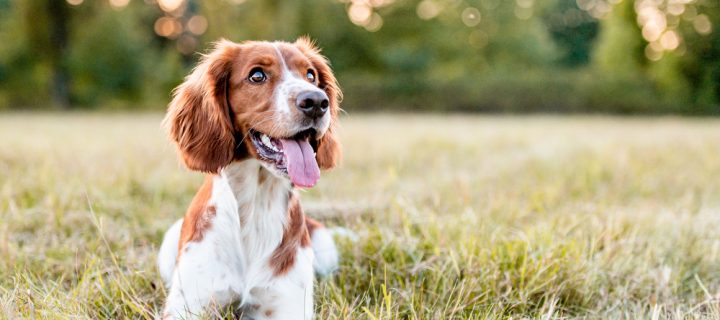Claire Guest experienced the trauma of being diagnosed with breast cancer six years ago and it wasn’t a typical route towards diagnosis- the whole journey started with her dog, a red Labrador named Daisy.
One day, Daisy began staring at her owner and lunging at her chest says a report on cnn.com, which led Guest to make a visit to her doctor. What she found out was surprising- Guest had a small tumor, borrowed deep in her chest. It was so deep in fact that, had she waited until she was able to feel a lump herself, the cancer would likely have been dangerously advanced.
In essence, Daisy saved her owner’s life.
Which is fitting, seeing as Guest is a professional dog trainer, who has dedicated part of her professional career to training dogs to detect illnesses by odor- including cancer.
Guest started training dogs to detect cancer in 2003, in the first program of its kind in the word.
Says her website, “Because dogs are able to detect tiny odour concentrations, around one part per trillion (the equivalent of one teaspoon of sugar in two Olympic sized swimming pools), we are potentially able to detect diseases, such as cancer, much earlier than is currently possible. Our pioneering work could help to speed up the diagnosis process and impact on thousands of lives.”
Guest’s medical detection dogs are animals trained to sniff out cancer by detecting the unique odor spread by its volatile organic compounds.
Dogs are said to have 300 million sensors wired for smell compared with a humans who have only 5 million. Some, who are part of Guest’s organization, can pick out cancer correctly about 95% of the time.
But just to make it official, her site says, Guest currently has dogs participating in clinical trials in conjunction with Britain’s National Health Service, in order to see just how good canine cancer detection abilities really can be.
The only drawback to it all is that some say it is hard to pinpoint how the dogs’ skills can be commercialized, in the long run.
Companies and organizations have so far been reluctant to fund more research in canine cancer detection, as they aren’t sure where the results, while impressive, will lead, says a report on cnn,com.
Said Dr. Sheryl Gabram, an Emory University surgeon who has shown that dogs can reliably detect cancer from sniffing patients’ breath, to cnn.com, “We submitted everywhere and could never get it (the study) funded to move the research any further.”
Regardless, Gabram feels that it’s still an area that could prove promising, and like Guest, she feels that medical detection dogs could work in conjunction with traditional detection techniques, for finding cancer in humans, in the future.
Apart from cancer detection, Guest is also interested in taking her dogs’ training further, and is currently working on a number of research projects including training dogs to detect changes in blood sugar levels, Addison’s disease and narcolepsy.
So, a dog is a person’s best friend? You bet. And canines detecting cancer is just one part of an interesting body of knowledge that indicates many animals can work with us to keep us healthy. Pigeons, mice, rats and even fruit flies have been said to be skilled at detecting disease in humans, from cancer to tuberculosis to bird flu, proving that we may think we’re top of the food chain but often it could prove us well to work with nature, instead of against it.
Photo credit: el-ka/Shutterstock












